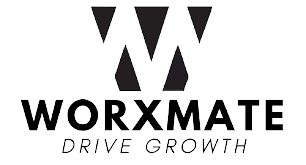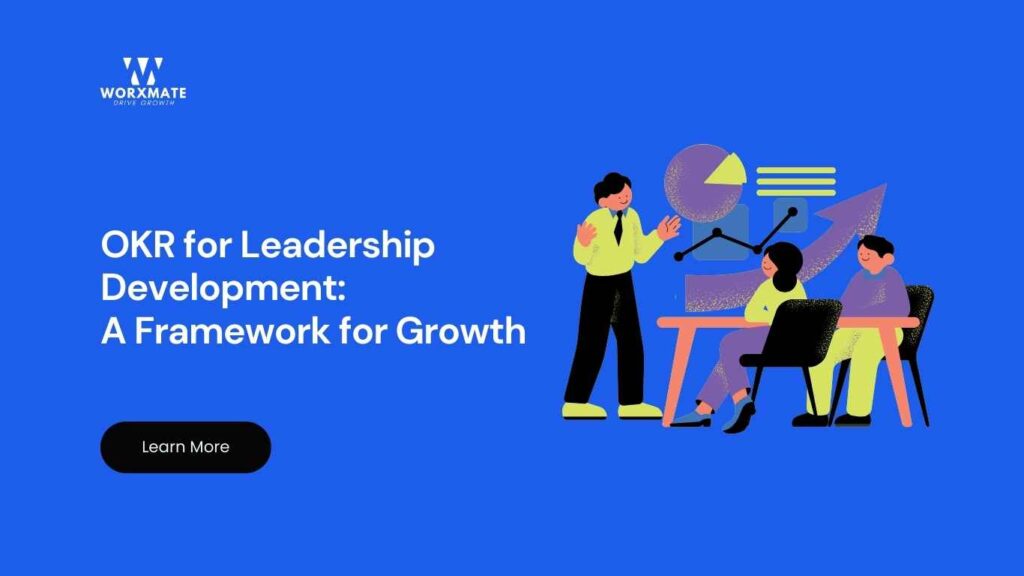In an era where agility and innovation are the lifeblood of business success, the role of leadership has never been more critical. The ability to guide teams through complex challenges and drive meaningful outcomes hinges on effective leadership development.
Objectives and Key Results (OKRs) have emerged as a powerful framework for achieving this goal. By aligning individual and team objectives with the company’s strategic goals, OKRs can significantly enhance leadership capabilities and drive performance.
This blog explores how OKRs can be leveraged for leadership development, supported by real-world examples and statistics.
What is Leadership Development?
Leadership development is a strategic process designed to enhance individuals’ abilities to guide, inspire, and influence teams toward achieving organizational goals.
It goes beyond traditional training by cultivating core competencies like emotional intelligence, decision-making, communication, and conflict resolution.
Effective programs focus on both current and future challenges, empowering leaders to adapt to evolving market dynamics, foster innovation, and build resilient cultures.
By prioritizing self-awareness and continuous learning, leadership development helps individuals recognize their strengths, address gaps, and model behaviors that drive employee engagement and trust.
Organizations invest in these initiatives to create a pipeline of capable leaders who can navigate complexity, align teams with vision, and sustain long-term success.
Ultimately, it’s about transforming potential into performance, ensuring leaders at all levels can inspire action and deliver measurable results in an ever-changing business landscape.
The Evolution of Leadership Development
Leadership development has transformed from traditional mentorship programs to dynamic, goal-oriented strategies that align with organizational growth.
Today’s leaders are expected to be agile, visionary, and capable of steering their teams through uncertainty. This evolution demands a structured approach to leadership development that adapts to changing business landscapes.
According to a 2021 report by LinkedIn, 74% of companies state that leadership and management are the most critical skills to develop in their employees.
Moreover, organizations with strong leadership development programs are 2.4 times more likely to hit their performance targets. These statistics underscore the pressing need for effective leadership training methods like OKRs.
The Importance of Leadership Development
Leadership development is a strategic priority for many organizations. According to a LinkedIn Learning report, 94% of employees would stay longer at a company if it invested in their career development.
Additionally, companies that prioritize leadership development see a 2.4 times higher revenue growth and 3.5 times higher profit margins than those that do not.
The Role of OKRs in Leadership Development
OKRs offer a structured pathway for grooming future leaders by emphasizing clarity, alignment, and continuous improvement. At its core, OKRs provide leaders with a framework to:
- Set Ambitious Goals: Leaders must think big and set ambitious objectives that challenge the status quo. Whether it’s driving market expansion or fostering a culture of innovation, OKRs encourage leaders to aim high.
- Focus on Key Results: Achieving objectives requires measurable outcomes. Key Results in OKRs helps leaders to track progress and ensure accountability. This focus on results cultivates a performance-driven culture essential for leadership growth.
- Drive Alignment Across Teams: Leadership isn’t solitary; it thrives on collaboration and alignment. OKRs promote cross-functional teamwork by aligning individual and team objectives with broader organizational goals. This alignment fosters cohesion and collective effort towards shared outcomes.
- Encourage Adaptability and Learning: Effective leaders embrace change and are constantly learning. OKRs promote adaptability by encouraging leaders to pivot strategies based on real-time insights and market dynamics. This iterative approach not only enhances leadership agility but also nurtures a culture of continuous learning within the organization.
Case Studies in Leadership Excellence
Consider Google’s implementation of OKRs under Larry Page and Sergey Brin, where the framework helped cultivate a culture of innovation and accountability. By setting audacious goals like improving search relevance and launching new products, Google’s leaders not only inspired their teams but also transformed industries.
Similarly, Salesforce utilizes OKRs to empower its leaders to drive customer success and innovation. By aligning leadership objectives with customer-centric outcomes, Salesforce has sustained its position as a market leader in cloud computing.
Implementing OKRs for Future Leaders
For organizations aspiring to develop the next generation of leaders through OKRs, several best practices can enhance effectiveness:
- Top-Down Alignment: Ensure senior leadership champions OKRs and leads by example in setting ambitious goals.
- Continuous Feedback: Foster a culture of feedback where leaders receive regular input on their progress and adapt their strategies accordingly.
- Skill Development: Integrate leadership competencies into OKRs to promote skill development aligned with organizational objectives.
- Celebrating Milestones: Recognize and celebrate achievements tied to OKRs to reinforce a culture of success and motivation among future leaders.
The Impact of OKRs on Organizational Performance
Statistics show that organizations leveraging OKRs are better positioned to achieve high performance. A study by The Performance Institute in 2022 found that companies using OKRs reported a 30% increase in employee engagement and a 23% improvement in performance metrics. These improvements are attributed to the clear direction and measurable outcomes OKRs provide.
Furthermore, Harvard Business Review highlights that 64% of executives believe their employees’ ability to meet business objectives is the key driver of organizational success. Implementing OKRs helps align leadership development with these critical business goals, ensuring that future leaders are equipped to drive the company forward.
Challenges and Solutions in Using OKRs for Leadership Development
While OKRs offer numerous benefits, implementing them for leadership development can present challenges. Common obstacles include resistance to change, misalignment between individual and organizational goals, and lack of understanding of the OKR framework.
To address these challenges:
- Provide Comprehensive Training: Ensure that leaders and their teams understand the principles and benefits of OKRs. Training sessions and workshops can demystify the process and encourage buy-in.
- Ensure Regular Review and Adjustment: OKRs should be dynamic. Regular review meetings can help adjust goals and strategies in response to changing circumstances.
- Promote a Culture of Transparency: Foster an environment where progress towards OKRs is openly shared. Transparency encourages accountability and collective problem-solving.
Conclusion
As businesses navigate the complexities of a global economy, the demand for visionary leaders has never been greater. OKRs provide a robust framework for developing leadership excellence by fostering clarity, alignment, and adaptability.
By empowering leaders to set ambitious goals, drive measurable outcomes, and foster collaboration, OKRs pave the way for the next generation of leaders poised to steer organizations towards success.
Ready to see how our OKR solutions can transform your team’s performance? Book a demo now and discover the power of clear objectives and measurable results!



